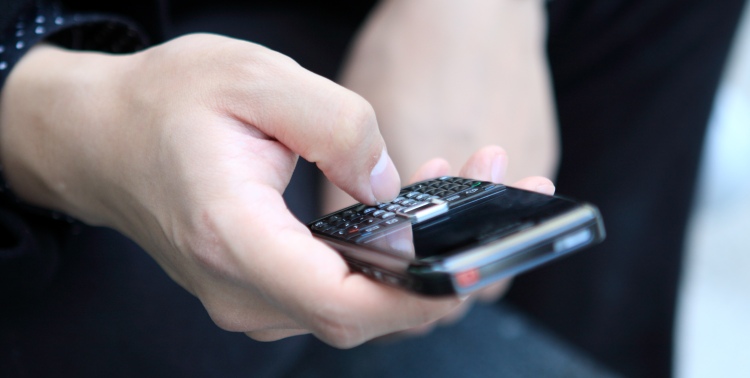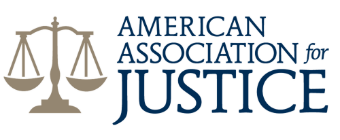Are you receiving telemarketing calls or texts that you never consented to? Those are violations of the Telephone Consumer Protection Act, a powerful federal law that regulates the use of autodialer systems and pre-recorded voice messages.
- The TCPA allows private citizens to file private lawsuits.
- You may be able to win up to $1,500 per unwanted call.
- Learn more in a free case evaluation.
Still getting unwanted calls? Fielding texts every day that you don't want? Our experienced robocall lawyers may be able to help. Fill out our questionnaire to find out if you qualify.
Robocalls are annoying and invasive. Most of the time, they're also illegal. Don't wait for them to stop calling you. They won't.
"Highly Recommended." Laurence came through when I need him the most.
What Is The TCPA?
TCPA stands for the Telephone Consumer Protection Act. This law was passed in 1991 by Congress and was then signed into law by President George H. W. Bush. The purpose of the law is to restrict the calls made by telephone solicitors (telemarketers) and the use of automated telephone equipment, or autodialers.
How Does The TCPA Impact Telemarketing?
About three decades ago, telemarketers started to get hold of a new technology. It was called the autodialer, a machine that could store phone numbers and dial them automatically. Autodialers were revolutionary. Call centers and telemarketers were able to save on labor costs, firing the humans who used to manually dial phone numbers and replacing them with machines.

Regulating Autodialers & Prerecorded Messages
Autodialers are much faster than people are. The software programs of today can make around 60 to 80 calls every hour; that's nearly 2,000 calls every day. Get a bunch of autodialers and you could eventually be making hundreds of thousands of calls on a daily basis. Things get even more efficient when you take people out of the picture entirely. Instead of dialing a number and forwarding the call to a live representative, why not just play a pre-recorded message?


It was a hit. Telemarketers started adopting this new model en masse, combining autodialers and pre-recorded messages to spam American consumers with millions of unwanted sales calls every year. It was annoying. It was invasive. In some cases, it shaded into abuse. And, in 1991, Congress decided to act.
The big problem, lawmakers reasoned, was the indiscriminate use of autodialer systems and prerecorded (0r artificially-created) voice messages. So they cut down on it, prohibiting the use of autodialers and prerecorded messages unless the telemarketer could first obtain someone's consent to call.
Does It Matter What Kind Of Phone I'm Using?
Yes, it makes a big difference.
Over the years, the TCPA has undergone a number of revisions, along with significant regulatory expansion. Remember that cell phones weren't really a thing in 1991, when the TCPA was first enacted. Today, most unsolicited sales calls are answered on a cell phone, not a home phone.
Cell Phones
It's illegal for anyone to use an autodialer to call your cell phone, unless you've given them your prior express written consent. That's also true for prerecorded messages; you have to consent, in writing, to receive them before it's legal.
Text Messages
Text messages count as voice calls, because most telemarketers who send advertising texts use autodialer systems to do so. More recent FCC regulations have made it clear that voice calls and text messages should be treated the same for TCPA purposes. That means many of the advertising-related texts you get could be illegal, too. It all comes down to consent. If you provided a company with written consent to robocall or robotext you, it's illegal. If you didn't, it's not.
Home Phones
Things are a little different for landlines. It's okay for telemarketers to use autodialer systems to call you on a residential home phone. Prerecorded messages, on the other hand, are still illegal, unless you've given them consent.
VoIP
Use VoIP (Voice over Internet Protocol) to route home phone calls to your cell number? The Federal Communications Commission hasn't yet weighed in one this topic, but several courts have taken the issue up.
Obviously, VoIP technology wasn't around in 1991, when the Telephone Consumer Protection Act was enacted. But it's helpful to remember that, alongside cell phones, the law's strictest limitations apply to any phone "for which the called party is charged for the call." Telemarketers aren't allowed to call these phones using an autodialer system or a prerecorded voice message without your prior written consent.
Per-Call Payment Or Monthly Fee?
In several court cases, judges have suggested that these restrictions carry over from cell phones into the world of VoIP. But it could make a big difference what your VoIP payment plan is. In the few relevant cases that have thus far gone to court, judges have found that, when a person is being charged by their VoIP provider on a per-call basis, they have every right to sue a telemarketer over TCPA violations.
The logic behind this conclusion is simple. In a sense, the telemarketer is forcing you pay for phone calls, because you pay for every call that comes through your VoIP network. Thus, you have a right to recover damages. It's not so clear if this liability applies when you're paying a monthly fee for VoIP service, regardless of the number of calls you receive. As we said, this is a developing area of the law.
How Do I Know If An Autodialer Is Being Used?
When an automatic dialing system is being used, the human operator does not need to type in the phone number of the person being called, which means they can just sit on the line, as the system dials phone numbers over and over and over until someone picks up.
Although it’s difficult to prove that this type of system is being used, some indicators may include:
- A long pause after answering the phone before the person on the line begins to speak.
- A loud click immediately after answering prior to a live person coming onto the line.
- Dead air calls.
Newer autodialer programs can even help customer service and marketing agents identify disconnected numbers, answering machine pickups and busy signals, allowing the company to focus its resources on the phones that are actually picked up. A similar technology, known as a predictive dialer, goes even further.
What Is A Predictive Dialer?
Predictive dialers (usually computer programs) use complex algorithms to make the process of telemarketing more efficient. The program itself calls multiple phone numbers at the same time, while simultaneously predicting when the next live representative will be available. By pairing answered calls with live representatives, the predictive dialer ensures that each agent is occupied with a sales call at all times. Just like autodialer systems, predictive dialers are covered by the Telephone Consumer Protection Act.
What Is The Do-Not-Call List & How Do I Register?
The Telephone Consumer Protection Act also created the National Do-Not-Call Registry, though it would take another 12 years for the initiative to actually go into effect. In 2003, the Federal Trade Commission opened the Do-Not-Call list for registration. Anyone could add their phone number to the list, giving telemarketers notice that they don't want to receive any sales calls.
Meanwhile, any person or company who wants to send telemarketing calls has to check the list regularly. Calling someone on the list is generally illegal. Violators can be held accountable, either through fines levied by the Federal Trade Commission or through private civil lawsuits.
I Signed Up, But I'm Still Getting Calls.
The National Do-Not-Call Registry will stop some, but not all, unsolicited telephone calls, because there are many exceptions. It's only for personal phones, not business lines. Moreover, political organizations, non-profit charities, survey firms and debt collectors are exempt; they don't have to comply with the Registry's requirements.
Even so, anyone who wants to stop unsolicited phone calls should put their number on the list immediately. Registration is permanent, so you don't have to re-register every few years. And registering is easy; just submit your telephone number here.
After you register, telemarketers get a 31-day grace period before they have to stop calling you. After that, you can file a lawsuit against companies who continue to call you in violation of federal law.
Does The DNC List Apply To Business-To-Business Calls?
Most of the time, no. Telemarketing calls to businesses are usually exempt from following the National Do-Not-Call Registry requirements, so long as the telemarketer is actually trying to sell the business something. But usually isn't always.
The Federal Trade Commission outlines two situations in which telemarketers have to comply with the DNC rules, even during B2B calls:
- When the telemarketer is trying to sell something to an employee of the business for their own personal use, rather than selling something to the business itself.
- When the telemarketer is trying to sell "nondurable office or cleaning supplies," like paper, printer ink or paper towels.
That takes care of the Federal Trade Commission's rules. Now, let's turn to the Federal Communications Commission, who implements the bulk of the Telephone Consumer Protection Act. B2B sales calls made to a cell phone still need to comply with the TCPA's requirements, including the requirement of consent.
TCPA General Rules
Alongside limitations on autodialer use and prerecorded voice messages, the TCPA instituted some general rules that telemarketers are required to follow:
- Not call residences before 8 a.m. or after 9 p.m., your local time
- Not call anyone on a company-specific do-not-call list. Consumers who request to not be called must have that request honored for at least 5 years.
- Not call anyone on the National Do-Not-Call Registry (unless the call includes no sales-related information).
- Provide the people they are calling with their name, a telephone number, an address, and the name of the person or entity they are placing the call for.
- Not use a recording or artificial recording to solicit businesses.
- Not use faxes to advertise.
- Not use autodialing to call two or more lines of a multi-line business.
- Not use automated equipment to call an emergency line. This includes 911, doctors' offices and hospitals.
Can Telemarketers Call On Sunday?
Yes. Telemarketers can call you on any day of the week, as long as they follow all of the other rules we've discussed.
Can Telemarketers Block Their Numbers?
Not legally, but it's really common. It's even more common among scam artists, who use autodialer systems in hopes of swindling people out of their money. People call it "spoofing," when someone uses a program to alter or hide the information usually transmitted to a caller ID system.
There are a few legitimate purposes for spoofing, but it's usually illegal. Telemarketers, for example, are required by the Federal Communications Commission to transmit accurate telephone number data and, if possible, an accurate company name. If a telemarketer spoofs their caller ID (like switching in your local area code to make you answer), they're breaking the law.
How Is The TCPA Enforced?
All of these laws can be enforced through two mechanisms. The first option is to report an illegal robocall to the federal authorities and hope they do something about it.
Why You Should Report Robocalls
We think you should report every robocall you receive, especially violations of the National Do-Not-Call Registry. Reporting is important because it helps the Federal Trade Commission and Federal Communications Commission keep tabs on companies that could be breaking the law.
And who knows? A report could lead to a federal investigation, which could lead to a federal lawsuit and monetary damages. In a few years, you might even receive a check from the government, reimbursing you for the violation of your privacy rights.
Don't Stop At Making A Report
It's more likely, though, that you'll never hear from the government again. Thankfully, the Telephone Consumer Protection Act gives you another option, because private individuals like you are allowed to enforce it. If you were the victim of a TCPA violation, you have every right to file a civil lawsuit against the company who sent you the call.
How Much Can I Sue For In A TCPA Lawsuit?
The Telephone Consumer Protection Act is an interesting law, because, beyond telling you that you can sue, it also tells you exactly how much you can collect in damages. Every violation of the TCPA is worth $500 in a robocall or robotext lawsuit, unless the company who called you violated the law in a "willful or knowing" manner. In those cases, the civil penalty triples to $1,500.
That's a lot of money, but how do you know if the TCPA violations were "willful"?
"Willful & Knowing" Violations
Let's say you received a robocall that transferred you to a live representative. You told the representative to stop calling and hung up. The company who called you has to comply with your request. In practice, they have to add your phone number to an internal do-not-call list, then stop calling it. But let's assume that they didn't stop calling you.
Instead of stopping, the company called you another 43 times. Every time, you hung up, got frustrated for an hour, then forgot until it all started again. Instead of getting frustrated, though, you could get serious.
You could file a civil lawsuit and demand damages for those 43 calls, all of which could be considered "willful or knowing" because you already told them to stop calling you. At $1,500 a pop, all of those calls could secure $64,500 in compensation if your case is successful. And the TCPA also provides for attorneys' fees and court costs, so you could have those covered, too.
What Counts As Robocall “Consent?”
In order for a company to obtain consent for telemarketing, the consent must be express and in writing.
- express consent - Your consent must be unambiguous and specific. To properly obtain your consent, a telemarketer must make it clear exactly what you're consenting to (through a "clear and conspicuous disclosure" on the telemarketer's part). They can't obtain your consent to do one thing, then turn around and claim that you consented to something else. You have to consent specifically to receive autodialed or prerecorded voice calls, plain and simple.
Written consent is a little tricky. There's still significant legal controversy over what, exactly, constitutes written consent. Here's the FCC's lengthy definition of the concept:
"an agreement, in writing, bearing the signature of the person called that clearly authorizes the seller to deliver or cause to be delivered to the person called advertisements or telemarketing messages using an automatic telephone dialing system or an artificial or prerecorded voice, and the telephone number to which the signatory authorizes such advertisements or telemarketing messages to be delivered."
What that looks like in practice is open to interpretation, though we do know that electronic signatures are fine. Some courts have ruled that checking off a box to sign up for a web account constitutes written consent, but that's a dubious conclusion unless the form you're completing actually bears your phone number.
Do People Actually Sue Telemarketers And Win?
Yes! You can learn more about successful lawsuits against telemarketers on our settlements page.
Do I Have To Tell Them To Stop Calling First?
Although it’s not necessary, it is a good idea to tell a company to stop calling. When you do this, try to collect information including the representative’s name and the company phone number and address. Be very firm and clear with your request. Make sure you note the date and times that you have told a company to stop calling you.
How Long Will A Lawsuit Take?
There is no way to predict how long it will take for a lawsuit to reach its conclusion. In some cases, a settlement can be reached in a few months. Other cases take years.
What Will It Cost Me To File A Robocall Lawsuit?
Our experienced robocall lawyers work on a contingency-fee basis which means that our clients pay nothing until we win the case. Then, our fees are taken out of the money we recover for them so that they have everything to gain and nothing to lose.